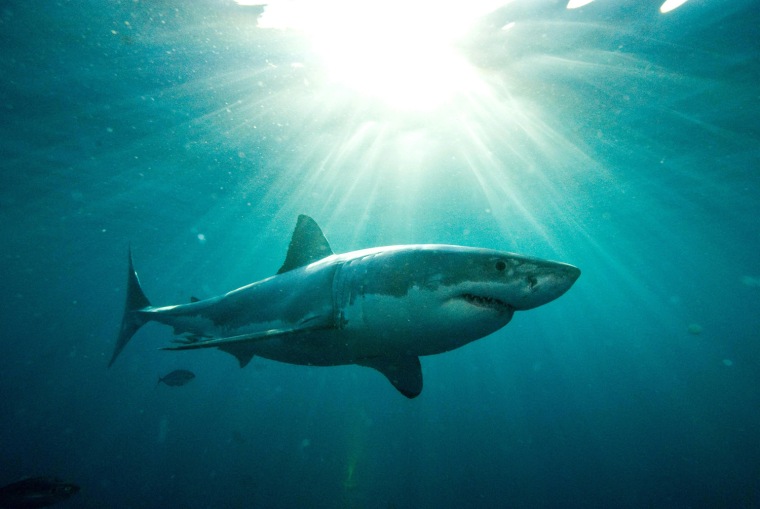Hundreds of sharks have been equipped with transmitters to trigger Twitter alerts when they get close to Western Australia's popular beaches.
So is it safe to go back in the water?
Surf Life Saving Western Australia, or SLSWA, says the system will speed up the pace for warnings in an area that's become one of the world's hot spots for shark attacks.
"Now it's instant information, and really people don't have an excuse to say we're not getting the information, it's about whether you are searching for it and finding it," SLSWA's Chris Peck told Sky News.
However, tweets aren't a cure-all for shark attacks, said David Shiffman, a shark researcher at the University of Miami. "This can be a part of an overall effective safety plan, but the same general individual principles to making you safe (swim during the day close to shore with other people) will still be better," Shiffman told NBC News in an email.
The alert system relies on transmissions from more than 320 sharks, including great whites, that have been wired to send out acoustic signals. When the sharks come within about a half-mile (one kilometer) of a beach, receivers pick up the coded transmissions and translate that into information about the shark's breed, size and location. The results are automatically sent out via SLSWA's Twitter account, thusly:
Shiffman said the setup is similar to a text-alert system for lifeguards that was pioneered by Western Australia's Department of Fisheries several years ago. At the time, Shiffman voiced skepticism about that project. He pointed out that outfitting sharks with transmitters can be a relatively expensive proposition, and that if sharks aren't tagged, they can't be detected by the monitoring system.
Moreover, texts and Twitter updates have their limitations as a warning system on the beach — and not just because you could get sand in your cellphone. "Tweets are useful as a warning system only if ... everyone who is at risk checks Twitter at the exact moment the warning is tweeted out, or the lifeguards are checking Twitter constantly (which means they're not watching swimmers very closely)," Shiffman told NBC News.
In his own follow-up tweet, Shiffman acknowledged that the alert system "is certainly preferable to culling," an anti-shark strategy set up by Western Australian authorities that has attracted criticism from conservationists.
"It's also important to note that shark bites are very rare," Shiffman said. "More people are killed by toasters and cows in a year than by sharks. The average American is approximately one million times more likely to die from a heart attack than a shark bite."
More about sharks:
- Shark kills surfer off Western Australia
- Late white shark: Seal escapes by a nose
- Shark is swallowed whole ... by a bigger shark
- NBC News archive on sharks
Alan Boyle is NBCNews.com's science editor. Connect with the Cosmic Log community by "liking" the NBC News Science Facebook page, following @b0yle on Twitter and adding +Alan Boyle to your Google+ circles. You can also check out "The Case for Pluto," my book about the controversial dwarf planet and the search for new worlds.
